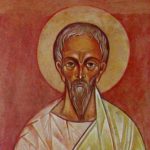Quotes about Lords_Day
[Sunday is] a privilege and a benefit, not a task and a drudgery.
On the day called Sunday, all who live in cities or in the country gather together in one place, and the memoirs of the apostles or the writings of the prophets are read… Sunday is the day on which we all hold our common assembly, because it is the first day on which God, having wrought a change in the darkness and matter, made the world; and Jesus Christ our Savior on the same day rose from the dead.
If we would stop treating Sunday as a second Saturday, one more day to run to Home Depot, one more day for the kids’ soccer games, another day for getting ready for Monday, if we would rediscover Sunday as The Lord’s Day, focusing on Him for just one day each week, what would be the immediate impact between today and one year from today? By one year from today, we will have spent 52 whole days given over to Jesus. Seven and a half weeks of paid vacation with Jesus. He’s a good King. Maybe we should put Him first in our weekly schedules. Not fit Him into the margins of our busy weekends, but build our whole weekly routine around Him.
Consider carefully the following evidence that the redemption accomplished through Christ’s resurrection determined the day for Christian worship: 1. Jesus Christ arose on the first day of the week (Matt. 28:1). He entered into his rest from labor, not on Saturday (the seventh day), but on Sunday (the first day of the week). As Jesus entered into his rest on the first day, so he encourages us to begin the week by resting in the confidence that He will provide for all our needs for seven days with only six days of labor. 2. Jesus Christ appeared to His assembled disciples on the first day of the week, as well as to Mary and to the two disciples on the road to Emmaus (John 20:10; Luke 24:13). By these appearances on the first day of the week, the resurrected Lord set a pattern for meeting with His disciples. They began expecting to meet with Him on the day of his resurrection, which is the first day of the week. 3. Jesus appeared to the assembled disciples one week later on the first day of the week, with doubting Thomas present this time (John 20:26). Already a new pattern of assembly for worship was emerging. God’s new covenant people were making it a habit to assemble together on the first day of the week, the day of Christ’s resurrection. Jesus honored these assemblies by appearing to the disciples at this time, and encouraged their faith in Him as the resurrected Lord. 4. The resurrected Christ poured out his Spirit on the assembled disciples exactly fifty days after the Sabbath of the Jewish Passover, which was the first day of the week (Acts 2:1; cf. Lev. 23:15–16). The word Pentecost means “fifty,” referring to the fifty days after the Sabbath of the Passover. Forty-nine days would span seven Jewish Sabbaths or Saturdays, and the fiftieth day would then fall on a Sunday, the first day of the week. So it would appear that the outpouring of the Holy Spirit came on the first day of the week, when God’s new covenant people were assembled for worship. So the pattern would be established more firmly. Both the resurrection of Christ and the outpouring of the Spirit occurred on the first day of the week. 5. As Paul spread the gospel of Christ among Jews and Gentiles throughout the world, the first day of the week was used as the time for Christians to assemble for worship. In Greece, Paul and Luke assembled with the people of God to break bread and to hear the preaching of God’s word on the first day of the week (Acts 20:7). This was the day that the people of the new covenant assembled to hear God’s word. 6. Paul wrote to the Christians in Corinth to establish the pattern for their presenting of offerings for the service of the Lord. He ordered the Christians in Corinth to follow the pattern that had already been set with the churches in Galatia (1 Cor. 16:1). On the first day of every week they were to consecrate their offerings to the Lord (1 Cor. 16:2). This schedule for honoring the Lord had become the pattern for God’s people throughout the churches. The churches were not to present their offerings any time they wished. Rather, on the first day of each week, all the Corinthian Christians were to follow the pattern that had already been set among the Galatian churches. The first day of the week was the designated time for the presentation of offerings to the Lord.
But what is the meaning of the phrase “on the Lord’s Day?” In one sense, it may be said that every day of the week belongs to the Lord, and so might be called the “Lord’s day.” But John [in Revelation 1:10] is referring to something more specific. He does not speak merely of “a” day that has been consecrated to the Lord. Instead he speaks of “the” Lord’s Day. That one day that may be called “the Lord’s Day” was the day in which He proved to the world that He was Lord. On one particular day, Jesus made the universe understand that He was Lord of all. That day was the day of His resurrection. On that day, he conquered the last of the sinner’s enemies, which is death. On the first day of the week, he showed that his power could overcome all enemies, even death itself. That day is “the Lord’s Day.”



